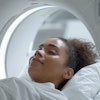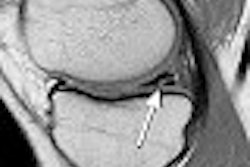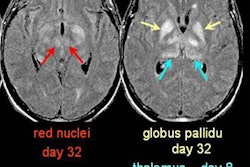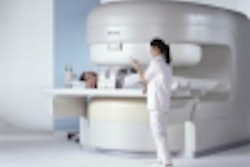MIAMI BEACH, FL - Magnetic resonance angiography (MRA) has supplanted invasive angiography for assessing treatment options in patients with vascular disease, according to a presenter at the International Symposium on Endovascular Therapy.
In a talk on Tuesday, Dr. Barry Stein, chief of cardiovascular MRI at Hartford Hospital in Hartford, CT, told attendees that MRA has proven to be safer, quicker and more accurate than invasive angiography in determining how patients with various peripheral artery disease should be approached.
"MRA was able to give us all the information we needed to find even discreet lesions," he said."To universally perform invasive diagnostic angiography in 2003 among these patients should be considered as a significant disservice to our patients and our profession."
MRA's advantages include its lack of invasiveness. The procedure is relatively risk-free, and does not require ionizing radiation or monitoring equipment, Stein said. In addition, MRA exams are accurate, painless, inexpensive, and easy to interpret, he said, adding that MRA is safe for patients with kidney disease, for whom traditional angiography may not be an option due to nephrotoxicity associated with the use of iodinated contrast agents.
However, before hospitals throw their invasive angiography equipment into the dumpster, they might want to consider MRA's limitations, said Dr. Lindsay Machan, head of angiographic imaging at the Vancouver Hospital and Health Sciences Center in British Columbia, Canada.
Machan noted that MRA cannot be performed on all patients. Peripheral arterial disease patients with pacemakers, cranial clips, or implantable cardiac defibrillators would be better served by angiography, he said. Claustrophobia is a common problem in the MR suite, as are patients who are too big to fit into the MR scanner, he added.
Instead, Machan recommended that MRA be reserved for less obvious cases. "In many respects, Dr. Stein is correct that MRA is an excellent first choice in diagnosing particularly the difficult patient," he said. "When we are not sure where the problem is, then the MRA is great."
By Edward SusmanAuntMinnie.com contributing writer
January 22, 2003
Related Reading
Magnetic resonance angiography highly sensitive in detecting carotid stenosis, January 1, 2003
Cardiovascular magnetic resonance determines coronary bypass graft patency, December 13, 2003
MRA falls short in treatment planning for peripheral artery disease, March 6, 2001
Copyright © 2003 AuntMinnie.com




















